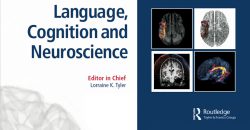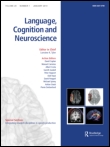What can silent gestures reveal about word order?

Mark Koranda and Maryellen MacDonald recently presented a poster at this year’s CUNY Conference on Human Sentence Processing. To learn more about their work, read the full abstract or view the poster. Short abstract. Investigations in the origin of word order preferences using a ‘silent gesture’ paradigm assume gesture descriptions contain separable language-like constituents such…



